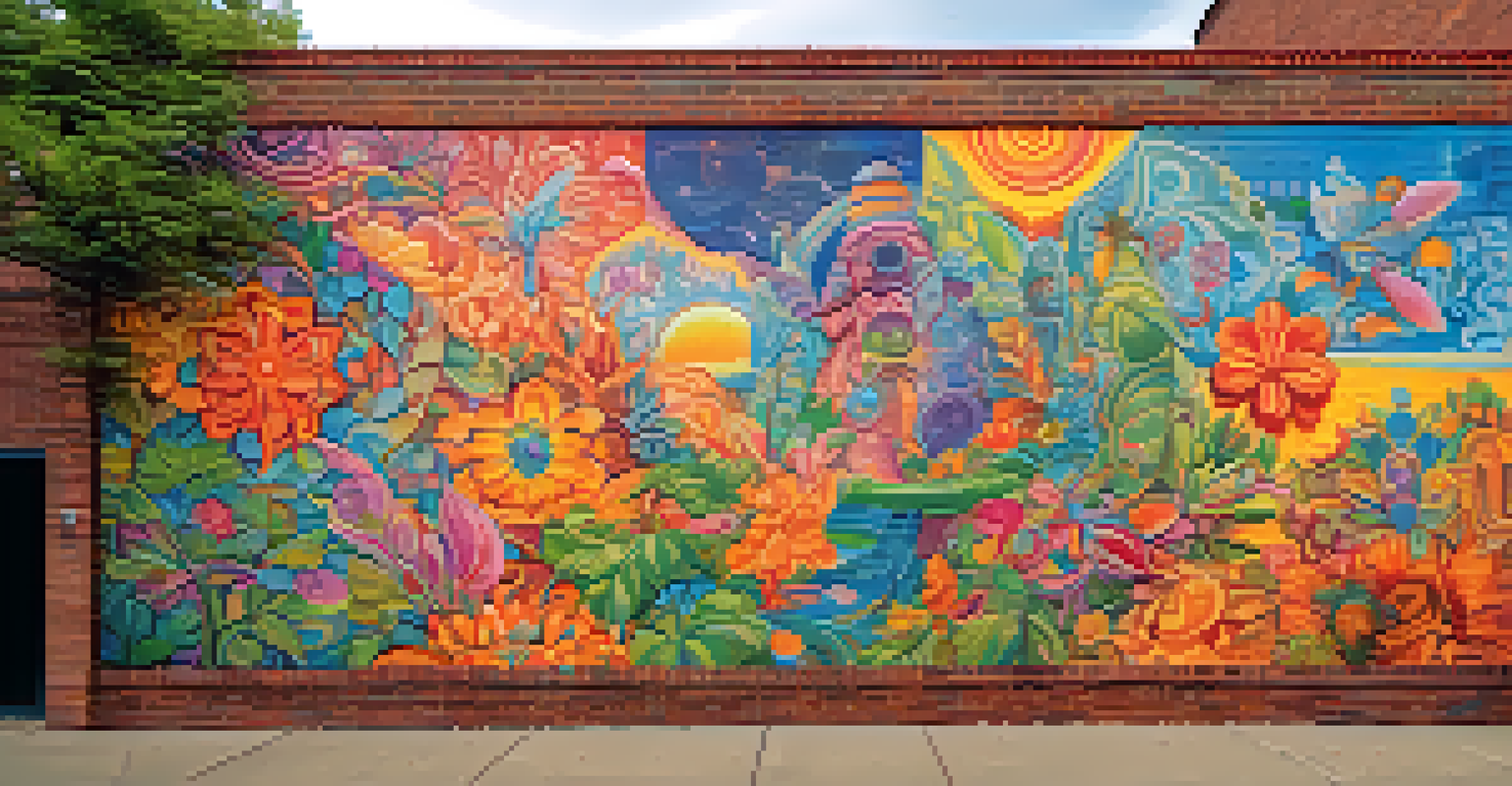Psychedelics as Tools for Social Equity and Justice

Understanding Psychedelics and Their Cultural Significance
Psychedelics, once stigmatized, are gaining recognition for their potential benefits in promoting social change. These substances, such as psilocybin and LSD, have deep historical roots in various cultures, often used for spiritual and healing purposes. By understanding their cultural significance, we can appreciate the potential they hold in addressing contemporary issues.
Psychedelics can help us heal the wounds of our past and empower us to advocate for social justice.
In many indigenous traditions, psychedelics serve as tools for communal healing and social cohesion. This perspective invites us to rethink how we approach mental health and social justice. By learning from these practices, we can begin to explore how psychedelics might contribute to a more equitable society.
The resurgence of interest in psychedelics has sparked a broader conversation about their role in promoting social equity. As we delve into this topic, it becomes crucial to consider how these substances can be integrated into modern social justice movements.
Psychedelics and Mental Health: A Path to Healing
Mental health disparities disproportionately affect marginalized communities, often leading to cycles of trauma and inequality. Psychedelics have shown promise in treating conditions like PTSD and depression, offering hope for those who feel trapped by their circumstances. By facilitating profound therapeutic experiences, these substances can help individuals reconnect with their sense of self and purpose.

This healing potential is particularly significant when considering the historical trauma experienced by many communities of color. By addressing mental health issues through psychedelics, we can begin to break down barriers and foster healthier, more resilient communities. Such healing can empower individuals to advocate for their rights and the rights of others.
Psychedelics Promote Social Equity
Psychedelics have the potential to address mental health disparities and foster social change, particularly within marginalized communities.
Ultimately, the integration of psychedelics into mental health treatment may pave the way for broader social equity. By prioritizing accessible mental health care, we can create a foundation for a more just society.
The Role of Education in Psychedelic Integration
Education plays a pivotal role in reshaping perceptions of psychedelics and their potential benefits. By providing accurate information, we can dispel myths and reduce stigma surrounding these substances. This shift in understanding is essential for fostering an environment where psychedelics can be viewed as legitimate tools for healing and social change.
The real challenge is not to legalize psychedelics but to ensure that the benefits reach those who have been historically marginalized.
Community education initiatives can help empower individuals to make informed decisions about psychedelics. By offering workshops, lectures, and resources, we can ensure that marginalized communities have access to the knowledge needed to navigate this landscape. The more informed people are, the more likely they are to advocate for their rights and the rights of others.
As we build educational frameworks around psychedelics, we can create a more inclusive dialogue. This dialogue can bridge the gap between traditional healing practices and modern therapeutic approaches, ultimately promoting social equity.
Psychedelics and Racial Justice: A Collective Healing Journey
The intersection of psychedelics and racial justice is an emerging area of interest, with many advocates highlighting the need for collective healing. Racial trauma affects not only individuals but entire communities, leading to a cycle of pain and disconnection. Psychedelics have the potential to facilitate shared experiences that foster understanding and unity among diverse groups.
By creating spaces for collective psychedelic experiences, we can promote dialogue and healing across racial lines. These gatherings can encourage empathy, compassion, and understanding, helping to dismantle systemic inequities. When communities come together in this way, they can forge stronger bonds and work collaboratively toward social justice.
Education is Key for Integration
Community education initiatives can empower individuals with the knowledge needed to navigate psychedelics, helping to dispel myths and reduce stigma.
Ultimately, the journey toward racial justice can be significantly enriched by the healing power of psychedelics. By prioritizing collective healing, we can create a more equitable future for all.
Legislation and Policy: Creating a Framework for Equity
As interest in psychedelics grows, so does the need for thoughtful legislation and policy that prioritizes social equity. Current drug policies often disproportionately impact marginalized communities, exacerbating existing inequalities. By reforming these policies, we can create an environment where psychedelics are accessible and safe for all.
Equitable access to psychedelics must be a cornerstone of any legalization effort. This includes ensuring that marginalized communities are included in the conversation about how psychedelics are regulated and distributed. By prioritizing equity in policy-making, we can prevent the commercialization of psychedelics from further entrenching existing disparities.
As we move forward, it's essential to advocate for policies that support social equity. By doing so, we can ensure that the benefits of psychedelics are available to everyone, particularly those who have historically been marginalized.
Psychedelics and Community Empowerment
Psychedelics can serve as powerful tools for community empowerment, fostering resilience and solidarity among marginalized groups. By facilitating transformative experiences, these substances can inspire individuals to take action within their communities. As people heal and grow, they often feel a renewed sense of purpose and commitment to social justice.
Community-based psychedelic initiatives can help to create safe spaces for exploration and healing. These initiatives can empower individuals to share their stories and support one another in their journeys. As communities come together in this way, they can build stronger networks of support and advocacy.
Legislation Must Prioritize Equity
Reforming drug policies to ensure equitable access to psychedelics is essential for preventing the entrenchment of existing disparities in society.
In this context, psychedelics become more than just substances; they become catalysts for collective action and empowerment. By harnessing this potential, we can create a movement that prioritizes social equity and justice.
Future Directions: The Path Ahead for Psychedelics and Justice
As we look to the future, it's clear that the conversation around psychedelics and social equity is just beginning. Continued research and dialogue are essential for understanding the full potential of these substances in promoting social justice. By fostering collaboration among researchers, policymakers, and communities, we can create a comprehensive approach to integrating psychedelics into social equity frameworks.
It’s crucial to engage marginalized communities in this ongoing conversation. Their voices and experiences must be front and center as we explore the potential of psychedelics for healing and empowerment. By prioritizing inclusivity, we can ensure that the benefits of psychedelics reach those who need them most.

As we navigate this evolving landscape, we must remain committed to social equity and justice. By doing so, we can help shape a future where psychedelics are recognized not only for their therapeutic potential but also for their role in fostering a more equitable society.